Scaling Beyond Limits: How Leaders Reimagine with AI
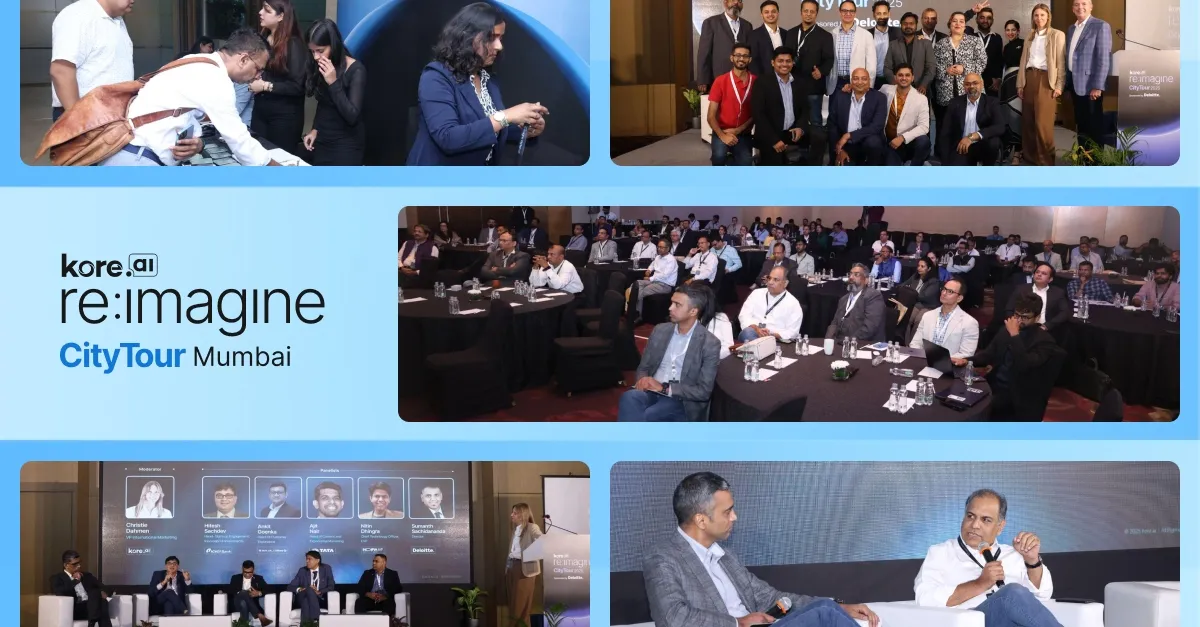
AI has moved past the hype cycle, but for many businesses, it still remains more of a promise than a practice. Though ambitions are high, it is confined to isolated pilots and proof-of-concepts that never quite scale.
What’s needed now is a shift, from experimentation to execution.
That was the spirit of Kore.ai’s Reimagine City Tour 2025 in Mumbai, where over 170 senior leaders from firms including BCG, AWS, Axis Bank, Microsoft, and Deloitte gathered to confront one pressing question: How do we move beyond experimentation and start using AI as a core part of how businesses run?
This wasn’t just another stop on the AI circuit. It was a frank and practical exchange where leaders shared real-world strategies and lessons they’ve learned the hard way in scaling AI in their organization.
The message coming out of the conversations had a clear direction: The future of AI in the business isn’t just about conversational AI systems. It’s about building a governed ecosystem of intelligent agents that solve real problems and actually deliver measurable results.
In this blog, we’ll explore how leading organizations are making that shift, scaling AI responsibly, turning isolated pilots into enterprise-wide platforms, unlocking customer value, and preparing for a future where AI agents operate as part of the workforce.
The great AI paradox: how to escape “POC Hell”
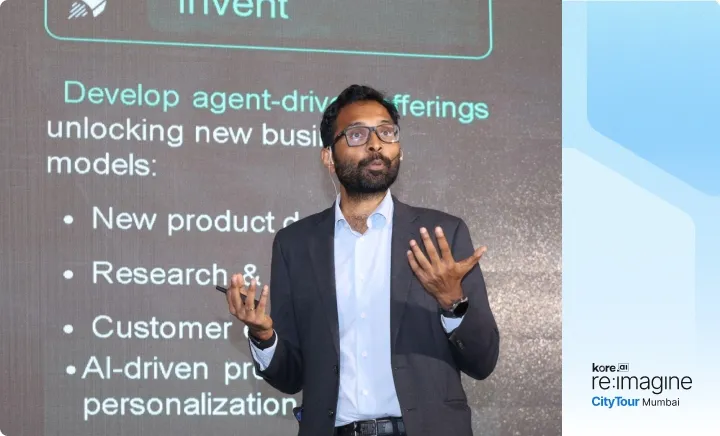
Across industries, AI pilots are everywhere, but meaningful impact remains elusive. The real challenge isn’t launching proof-of-concept projects. It’s escaping what Gaurav Jindal, Partner at BCG, calls “POC Hell”: a cycle of promising demos that never scale.
The trap, he warned, is that pilots “look great in the first few meetings, but never scale to real impact.” To move forward, businesses need more than excitement. They need a clear, disciplined strategy.
Jindal pressed that what separates successful AI programmes from stalled experiments is a shift in mindset and asking the right strategic questions upfront:
- Where can AI agents create the most value?
- How do we fund beyond early experiments?
- What infrastructure is needed to scale responsibly?
- How do we manage organizational change?
- How do we ensure AI is deployed responsibly?
When these questions are answered with rigor, the results speak for themselves. A leading Asian bank, for example, deployed an AI co-pilot for its wealth managers. The results? Triple the portfolio reviews, double the bond conversions, and a 60% drop in errors. More importantly, the bank saw happier employees and confident customers.
The biggest takeaway was that scaling AI responsibly doesn’t mean slowing down. It means moving with intent, setting clear guardrails, and building for durability, not just flashy demos.
The new enterprise playbook: scaling from pilot to enterprise-wide adoption

True scale comes when AI moves beyond pilots and becomes a platform for solving core business challenges. The new enterprise playbook starts with clarity: AI must be tied to business outcomes, not just novelty.
Srikanth R, SVP Technology at Axis Bank, put it plainly: “Customers don’t want a sophisticated chatbot — they want their problem solved, instantly.” This clear-eyed focus on clarity helped Axis Bank scale its AI assistant from handling 200 questions a day to 15,000. That success gave the bank the confidence to put generative AI into customers' hands.
Enterprise-wide adoption also demands trust and flexibility. In regulated industries like BFSI, lock-in isn’t just inconvenient; it’s a strategic risk. Srikanth explained. “We went through 24 vendors before choosing Kore.ai. Most tried to lock us in AI models, infrastructure, and orchestration. Kore was different. It’s a pure facilitator. Model-agnostic. If tomorrow we want to switch to GPT-5, it’s just a flip of a switch.”
The company bets on this powerful technology of AI agents to create a single interface to many business use cases, like wealth management to foreign exchange, and more.
For C-level leaders, Axis Bank’s journey is a calling where scale doesn’t happen by accident. It comes from delivering tangible customer value and choosing a technology partner who is a reliable enabler, not a roadblock.
Watch the full fireside chat here.
Unlocking real value with AI: practitioners’ perspectives
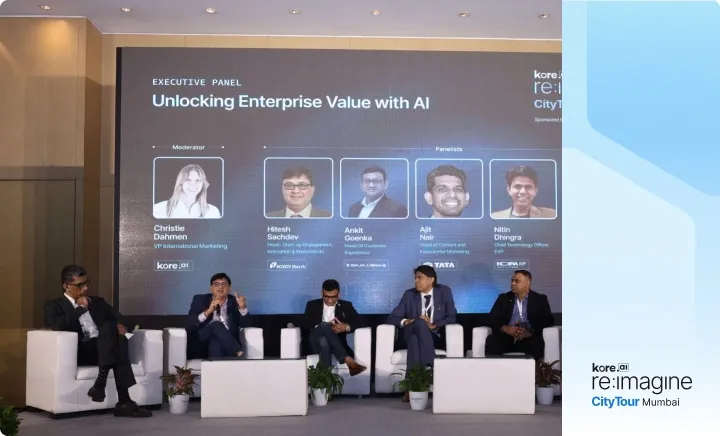
As enterprises move beyond experimentation, the conversation is shifting from “Can AI work?” to “Where does it create the most value?” That question was at the heart of the executive panel featuring leaders from ICICI Bank, Bajaj Allianz, Tata Communications, INDIRA IVF, and Deloitte.
Their conversation covered everything, from scaling AI in regulated environments to enhancing customer experience, driving empathetic engagement in healthcare, and maintaining brand integrity in B2B marketing.
Here are five standout insights from that conversation, each offering a blueprint for how AI can drive real business outcomes:
1. Value comes from end-to-end automation
Hitesh Sachdev of ICICI Bank emphasized that AI only delivers meaningful impact when it owns the entire process. “It’s not just about calling a customer. It’s about taking consent, debiting the account, issuing the policy — all handled by AI.”
2. Put the customer before the boardroom
Ankit Goenka of Bajaj Allianz urged leaders to rethink their priorities. “Are you building AI for the boardroom, or for your customer?” he asked. His Project Economy initiative empowered middle managers to use AI to solve genuine customer problems, not just tick boxes.
3. Empathy is essential
Nitin Dhingra of INDIRA IVF highlighted how GenAI can support compassionate care. “Studies show GenAI can express empathy better than humans,” he noted, pointing to tools like video consultations and personalized patient reports that help deliver emotionally intelligent support at scale.
4. Human oversight remains critical
Ajit Nair of Tata Communications spoke about the balance between speed and accuracy in B2B marketing. While AI has accelerated content creation, he stressed that “human oversight is crucial for technical accuracy and brand integrity,” especially where trust is fragile and mistakes are costly.
5. Regulated industries are setting the pace
Sumanth Sachidananda of Deloitte noted that banks and insurers are now leading the way. They’re defining the customer experience first, then building GenAI solutions to deliver it. This reversal of the typical tech-first approach ensures compliance and customer relevance from day one.
The panel’s verdict was clear: GenAI is now front and center of banking AI strategy and is sharing industries where trust, empathy, and precision are absolutely essential.
Watch the full panel discussion here
The next frontier: when AI agents become the organization

Enterprise AI is entering a new phase, one where AI agents are becoming a core part of the digital workforce.
"Frontier Firm?" It is an organisation where every employee is empowered by AI agents with access to the same powerful capabilities, explained Microsoft’s Sajan Padikalla this powerful concept. It’s a vision that aligns closely with Kore.ai’s approach, where AI becomes part of the everyday fabric of work, powering smarter decisions across the organisation.
But this future isn’t just about access; it’s about control. Padikalla issued a wake-up call that by 2028, there will be 1.3 billion agents. At the scale, the challenge shifts from adoption to governance. Enterprises will need robust Agent Lifecycle Management to ensure these agents are not only accountable but also aligned with business outcomes and ethical standards.
Murali, Senior Vice President of Products at Kore.ai, echoed this vision by outlining how the company evolved from conversational AI to a full-scale Agentic Operating System. He believes that the future enterprise "will be a hybrid workforce where human employees and AI employees work together seamlessly.” To make that future viable, organizations need “agents that are model-agnostic, cloud-agnostic, and teachable.”
So, where is the future of AI heading?
Some things really stood out in the conversations, especially these four key takeaways for enterprise leaders:
1. Enterprises are asking tougher questions. It’s no longer “What can AI do?”, but “How do we scale AI without losing control?” Leaders want AI that’s explainable, teachable, governable, and tied to outcomes.
2. Agents as colleagues. The new generation of AI agents is reasoning, escalating, and collaborating. They’re being trained to become part of the org chart.
3. Reliability beats capability. Flashy features don’t win trust. Consistency does, especially in regulated industries.
4. Adoption is a people problem. Tech is half the story. Change management, training, incentives, and culture are the other half. The enterprises that win will master both.
Closing reflection: Agentic future is already here
The future of enterprise is all about building an ecosystem of intelligent agents that scale, deliver value, and earn trust.
Success starts with clarity: solving real problems, choosing flexible partners, and designing for scale. Across industries, AI is driving impact through end-to-end automation, richer customer experiences, and even empathy at scale.
The next frontier is already unfolding. AI agents are becoming part of the workforce — teachable, governed, and working alongside humans to drive outcomes.
For leaders, the message is clear: AI is no longer a side project. It’s a structural shift. Those who embrace it with discipline will define the next decade of enterprise transformation.
At Kore.ai, we’ve spent more than a decade building for this moment. Our mission is to equip enterprises with the tools to adopt responsibly, move faster, and unlock measurable outcomes. If you’re ready to explore how agentic AI can reshape your enterprise, let’s connect to discuss your next step.
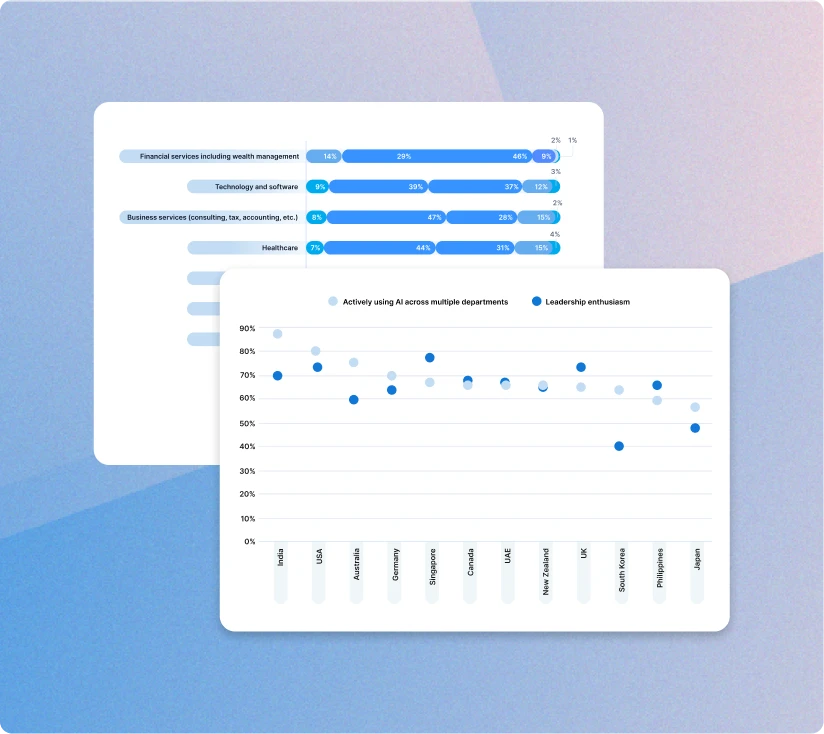


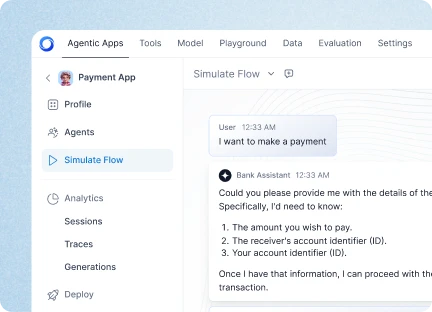
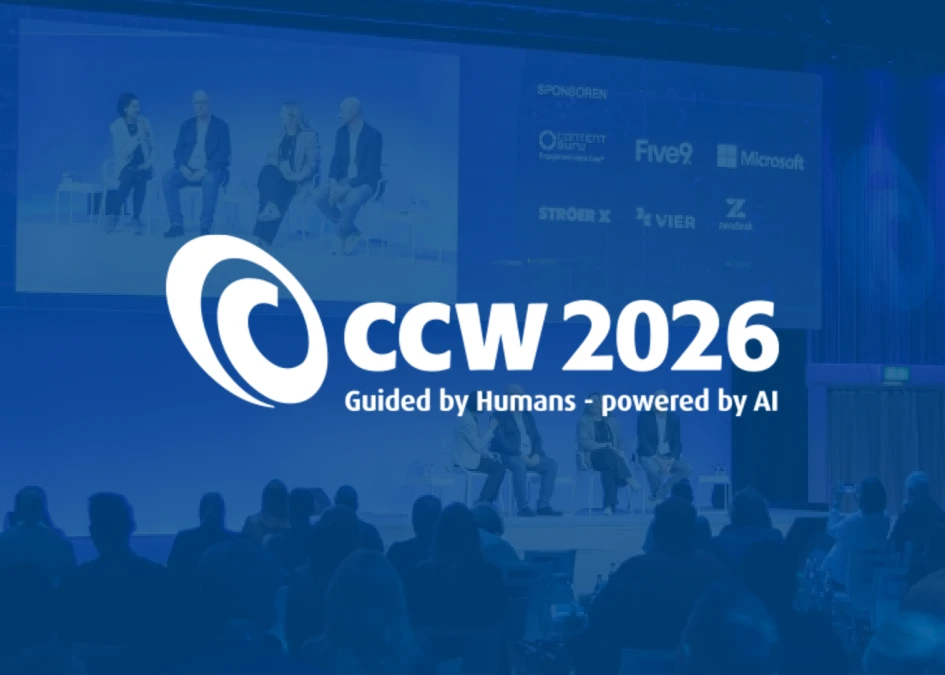
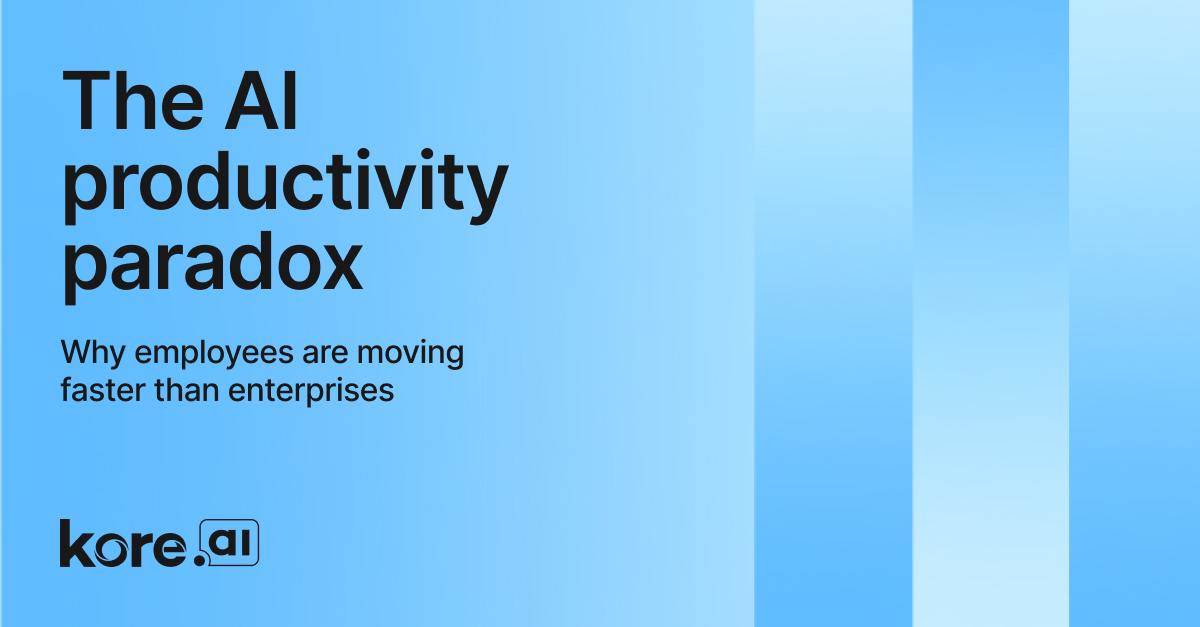
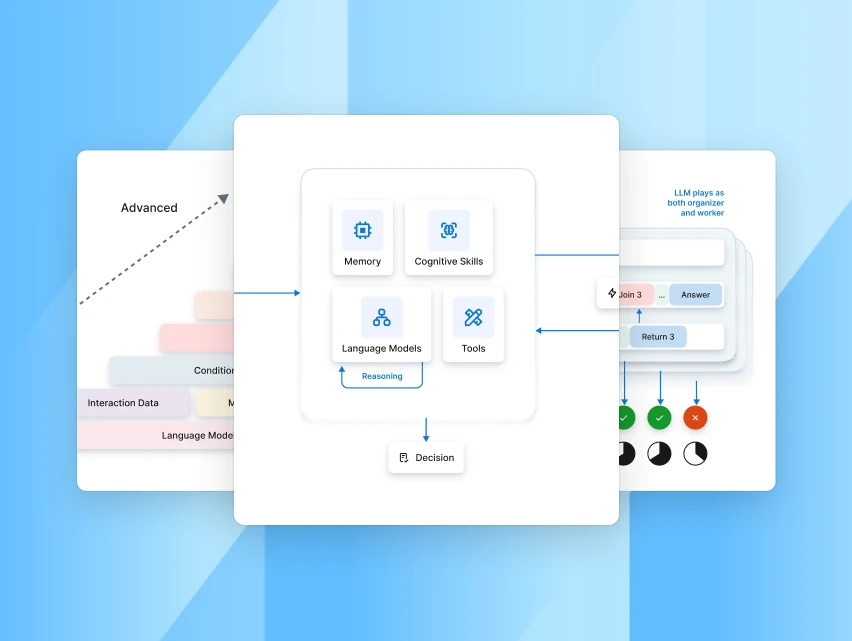

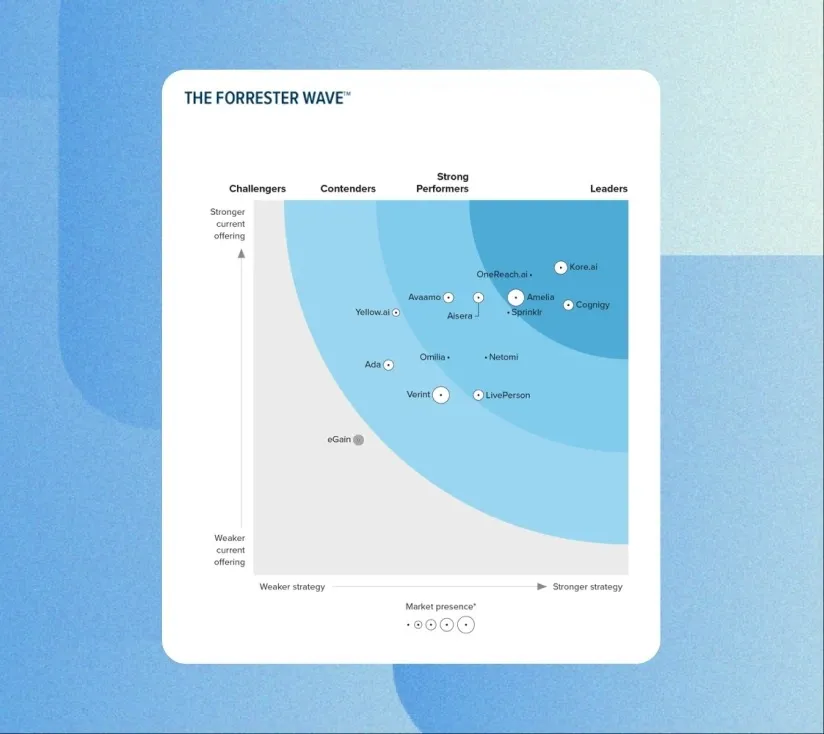


.webp)






